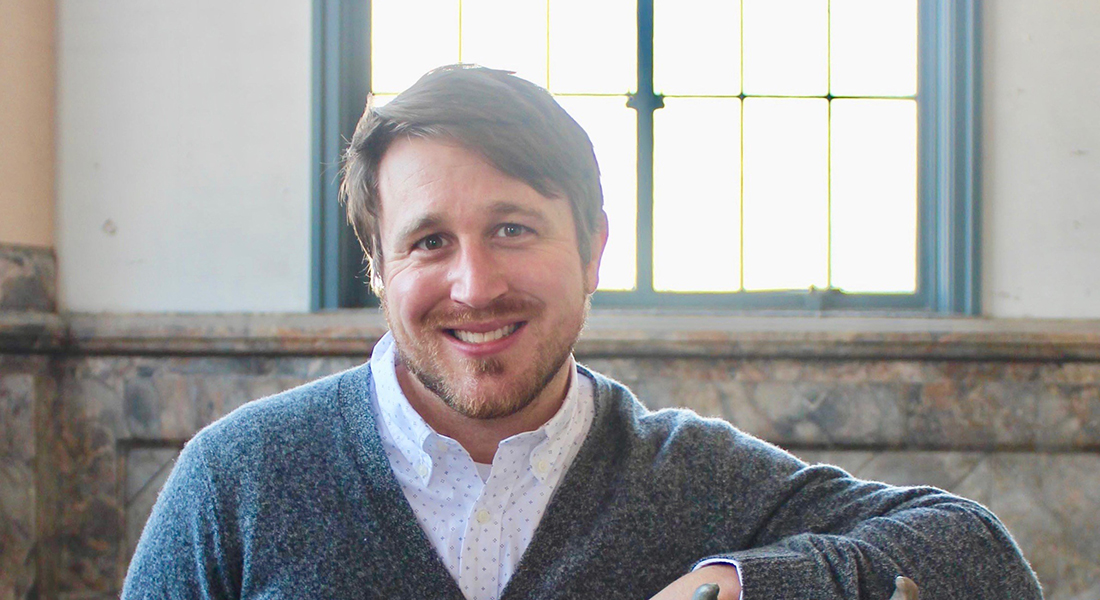The CCBS welcomes a new member of the team; Stephen Christopher
Stephen Christopher has received the prestigious Marie Skłodowska-Curie Individual Fellowship in Horizon 2020 – Research and Innovation Framework Programme, European Commission. We are excited that Stephen will join us in Copenhagen!

While a MSC-researcher at the CCBS, Stephen will complete a monograph on the rise of Tibetan Buddhism across Asia. His project analyses how Tibetan refugees generate value in a global spiritual economy shifting away from the West and towards East and Southeast Asia. While western cultural projections have spun Tibetan Buddhism in fantasies of anti-materialism, his research explores how diasporic Tibetan Buddhism generates substantial material and symbolic capital. As capital flows through transnational patronage networks to Tibetan settlements in India, it has the unintended consequence of impacting tribal ethnicity. Rather than siloing these phenomena into Refugee and Tribal Studies, Stephen’s research will demonstrate how shifting patronage of Tibetan Buddhism shapes, and is shaped by, Himalayan tribal life. Most broadly, his research argues that refugees can be value creators for host countries.
Stephen Christopher completed a PhD in anthropology from Syracuse University in 2018, specializing in Himalayan tribal ethnicity and refugee politics. His advisors were Susan Wadley and Ann Gold. In 2019, he was a JSPS (Japan Society for the Promotion of Science) Postdoctoral Fellow at Kyoto University. He worked with Tatsuro Fujikura on Tibetan diaspora politics in Japan.
Stephen is working on two interrelated projects. First, an analysis of Indian affirmative action through the ethnographic lens of Gaddis in Himachal Pradesh and the ongoing struggle of Dalits and Scheduled Castes to be politically recognized as tribal. Second, a comparative study of the rise of Tibetan Buddhism in East and Southeast Asia. The two projects intersect in Dharamsala, the shared home of Gaddis and Tibetans in Kangra, where transnational Tibetan patronage networks collapse into everyday tribal life.
He has recently published in the Copenhagen Journal for Asian Studies, the Journal of Social Inclusion Studies, Jimbun Gakuho,the Tibetan Review, and Tibet Post International. He is currently co-editing a volume for Springer with Sanghmitra Acharya called Caste, COVID-19, and Inequalities of Care: Lessons from South Asia.
Alongside research, Stephen is a dedicated teacher of undergraduate and graduate students in anthropology and South Asian studies. He has taught at Beijing Normal University, Vietnam National University, University of Bremen, Pitt in the Himalayas, Syracuse University, and Semester at Sea. He has brought students on experiential learning trips to India, Japan, Vietnam, and Mauritius, where students participated in Japanese tea ceremonies and Himalayan monasteries, diasporic Hindu temples and Vietnamese war memorials. He is currently teaching at Tokyo Metropolitan University.
Stephen is the South Asia editor at the Database of Religious History at the University of British Columbia, a quantitative encyclopedia of religious traditions and tool for making large-scale comparisons across time and space. He has consulted for iSEE, a Hanoi-based NGO working on the social inclusion of ethnic minorities in Vietnam. His doctoral research was funded by the Fulbright Program, an organization with which he maintains close ties in both the USA and India.
Since his earliest trips to India, when he was an undergraduate student at the University of Hyderabad in 2003-4, to his formative experiences in Tibet in 2007, Stephen has been motivated to research refugee and tribal cultures and aid however possible in the cultural preservation and political autonomy of minority groups throughout Asia.
We look very much forward to our collaboration at the Center for Contemporary Buddhist Studies.
